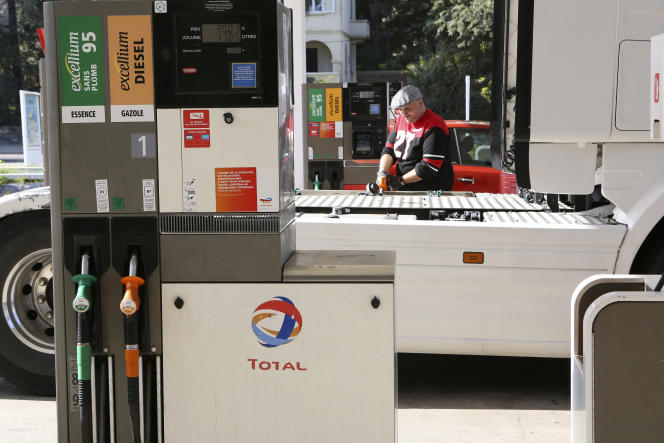Truck drivers, paramedics, warehouse workers, cash couriers, movers, coach and bus drivers… Monday, June 27, all categories of road transport should be in turmoil.
The five trade union federations of transport and logistics – for once united – are indeed calling for a national protest movement of the entire sector in order to demand wage increases.
Because it is indeed a campaign for the defense of the payslips of the road and warehouse trades which begins this Monday. In their unitary press release published in early June, the CFDT, the CGT, FO, the CFTC and the CFE-CGC set the tone: “Despite (…) the purchasing power of employees which is melting like snow in the sun, transport bosses practice the policy of the ostrich. The unions denounce in passing the “indecent proposals” for salary increases from their employers.
“In logistics, employers have put a 3% wage increase on the table as a basis for negotiation, explains Thierry Douine, president of the CFTC Transport Federation. It is a provocation. With this type of increase, the social minima of the branch are caught up or even exceeded by the minimum wage. We can even say overwhelmed! You have minimum salaries 3% to 4% below the minimum wage. »
A “mind-boggling” situation
The trade unions therefore refused this proposal for a 3% increase in logistics employers. They also deplore the absence of salary increases for seven years in the conveyance of funds. And the employees consider that the conventional increases negotiated in September 2021 in the road transport of goods and passengers are barely enough to compensate for “galloping and exponential inflation”.
Faced with a situation considered “staggering” by the inter-union, it therefore calls for a “first mobilization on Monday, June 27”. For the moment, this is only a warning shot and motorists probably do not have to fear major blockages on French roads at tolls or very busy intersections. “We’re not going to block the old-fashioned way,” says Mr. Douine. We will rather target key industrial and logistics areas, focus on certain large operators, bus depots, ambulances, cash transport. We are working on this cartography which we will make public as soon as possible. »
Opposite, transport contractors admit that certain categories of employees are not yet protected by salary increase agreements, while regretting the strike. “In cash transport, negotiations will start quickly, underlines Jean-Marc Rivera, general delegate of the Organization of European Road Carriers, which rather represents SMEs in the sector. But, frankly, apart from the logistics, where the negotiations did not succeed, I do not see the meaning of the June 27 action. In the freight transport sector, we signed a 6% wage increase for 2022. The job has been done. »
The bosses note that inflation (5.2% in May, according to INSEE), they too suffer from it. “Our energy bill is already very high,” recalls Mr. Rivera. Passing on infinite increases to our customers who are also hit by rising costs has its limits. But the balance of power is clearly not favorable to employers. Hiring tensions are high in a sector that employs nearly 800,000 employees in France.
“A push before summer”
According to the report of a sector observatory, in 2019, half of the companies in the branch were already struggling to hire (including 75% in road passenger transport). According to a study by the British firm Transport Intelligence, published in 2021, France currently lacks 40,000 to 50,000 truck drivers, twice as many as in 2017. “Working and salary conditions in our professions have become foils, observes Mr. Douine. In logistics, we work at night, in extreme cold or extreme heat. Drivers can work up to 200 or 250 hours per month. All at an hourly rate below the minimum wage! »
In this context, employers are playing for time and point out that new annual negotiations will begin in the fall. But the inter-union does not want this calendar, which sends all actors back to 2023. It calls for “the unconditional reopening” of new negotiations in all sectors.
“Employees have been harassing us for weeks to act quickly,” explains Thierry Douine. So we decided to put some pressure before the summer and if nothing changes, the mobilization will go up a notch at the start of the school year. »

















